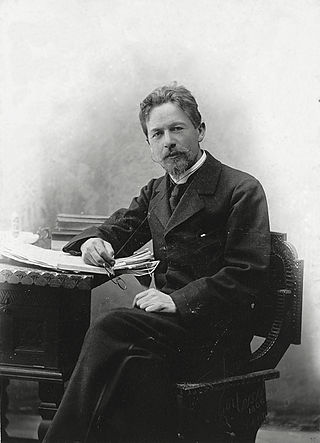
Anton Pavlovich Chekhov was a Russian playwright and short-story writer. His career as a playwright produced four classics, and his best short stories are held in high esteem by writers and critics. Along with Henrik Ibsen and August Strindberg, Chekhov is often referred to as one of the three seminal figures in the birth of early modernism in the theatre. Chekhov was a physician by profession. "Medicine is my lawful wife," he once said, "and literature is my mistress."
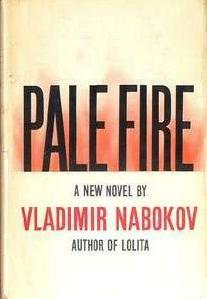
Pale Fire is a 1962 novel by Vladimir Nabokov. The novel is presented as a 999-line poem titled "Pale Fire", written by the fictional poet John Shade, with a foreword, lengthy commentary and index written by Shade's neighbor and academic colleague, Charles Kinbote. Together these elements form a narrative in which both fictional authors are central characters. Nabokov wrote Pale Fire in 1960–61, after the success of Lolita had made him financially independent, allowing him to retire from teaching and return to Europe. Nabokov began writing the novel in Nice and completed it in Montreux, Switzerland.
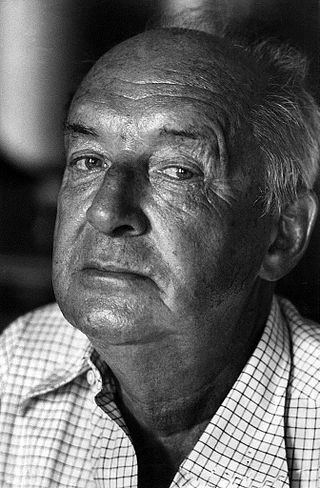
Vladimir Vladimirovich Nabokov, also known by the pen name Vladimir Sirin, was a Russian-American novelist, poet, translator, and entomologist. Born in Imperial Russia in 1899, Nabokov wrote his first nine novels in Russian (1926–1938) while living in Berlin, where he met his wife. He achieved international acclaim and prominence after moving to the United States, where he began writing in English. Nabokov became an American citizen in 1945 and lived mostly on the East Coast before returning to Europe in 1961, where he settled in Montreux, Switzerland.
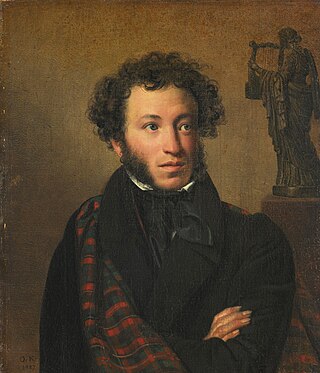
Alexander Sergeyevich Pushkin was a Russian poet, playwright, and novelist of the Romantic era. He is considered by many to be the greatest Russian poet, as well as the founder of modern Russian literature.

Eugene Onegin, A Novel in Verse is a novel in verse written by Alexander Pushkin. Onegin is considered a classic of Russian literature, and its eponymous protagonist has served as the model for a number of Russian literary heroes. It was published in serial form between 1825 and 1832. The first complete edition was published in 1833, and the currently accepted version is based on the 1837 publication.

Boris Nikolaevich Bugaev, better known by the pen name Andrei Bely or Biely, was a Russian novelist, Symbolist poet, theorist and literary critic. He was a committed anthroposophist and follower of Rudolf Steiner. His novel Petersburg (1913/1922) was regarded by Vladimir Nabokov as the third-greatest masterpiece of modernist literature. The Andrei Bely Prize, one of the most important prizes in Russian literature, was named after him. His poems were set to music and performed by Russian singer-songwriters.
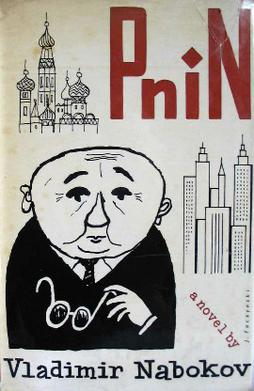
Pnin is Vladimir Nabokov's 13th novel and his fourth written in English; it was published in 1957. The success of Pnin in the United States launched Nabokov's career into literary prominence. Its eponymous protagonist, Timofey Pavlovich Pnin, is a Russian-born assistant professor in his 50s living in the United States, whose character is believed to be based partially on the life of both Nabokov's colleague Marc Szeftel as well as on Nabokov himself. Exiled by the Russian Revolution and what he calls the "Hitler war", Pnin teaches Russian at the fictional Waindell College, loosely inspired by Cornell University and Wellesley College—places where Nabokov himself taught.

The Gift is Vladimir Nabokov's final Russian novel, and is considered to be his farewell to the world he was leaving behind. Nabokov wrote it between 1935 and 1937 while living in Berlin, and it was published in serial form under his pen name, Vladimir Sirin.

Brian David Boyd is a professor of literature known primarily as an expert on the life and works of author Vladimir Nabokov and on literature and evolution. He is a University Distinguished Professor in the Department of English at the University of Auckland, New Zealand.

Despair is the seventh novel by Vladimir Nabokov, originally published in Russian, serially in the politicized literary journal Sovremennye zapiski during 1934. It was then published as a book in 1936, and translated to English by the author in 1937. Most copies of the 1937 English edition were destroyed by German bombs during World War II; only a few copies remain. Nabokov published a second English translation in 1965; this is now the only English translation in print.
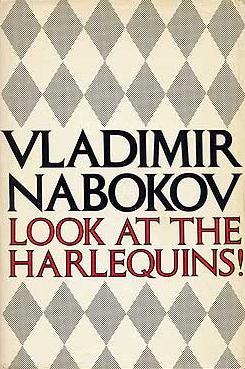
Look at the Harlequins! is a novel written by Vladimir Nabokov, first published in 1974. The work was Nabokov's final published novel before his death in 1977.

The Garin Death Ray, also known as The Death Box and The Hyperboloid of Engineer Garin, is a science fiction novel by the noted Russian author Aleksey Nikolayevich Tolstoy written in 1926–1927. Vladimir Nabokov included parodic elements in his tragicomedy The Waltz Invention (1938).

A Russian Beauty and Other Stories is a collection of thirteen short stories by Russian author Vladimir Nabokov. The short stories in this collection were originally written in Russian between 1927 and 1940 under the pseudonym Vladimir Sirin. Before being collated into short story collections, some were published by various European Russian émigré newspapers and magazines.
"Lips to Lips" is a short story written in Russian by Vladimir Nabokov in Berlin in or about 1931. It was first published in 1956 as part of the collection Vesna v Fialte. After its translation into English by the author and his son it was first published in Esquire in 1971 and then in the collection A Russian Beauty and Other Stories in 1971.
This is a list of works by writer Vladimir Nabokov.

Lolita is a 1955 novel written by Russian-American novelist Vladimir Nabokov that addresses the controversial subject of hebephilia. The protagonist is a French literature professor who moves to New England and writes under the pseudonym Humbert Humbert. He describes his obsession with a 12-year-old "nymphet", Dolores Haze, whom he kidnaps and sexually abuses after becoming her stepfather. Privately, he calls her "Lolita", the Spanish diminutive for Dolores. The novel was originally written in English, but fear of censorship in the U.S. and Britain led to it being first published in Paris, France, in 1955 by Olympia Press.

The Man from the USSR and Other Plays is a collection of four dramas by the Russian writer Vladimir Nabokov, first published in 1984. The plays were collected and translated from the original Russian by Nabokov's son, Dmitri Nabokov after his father's death. The volume consists of the plays 'The Pole', 'The Man from the USSR', 'The Event' and 'The Granddad' ('Dedushka').
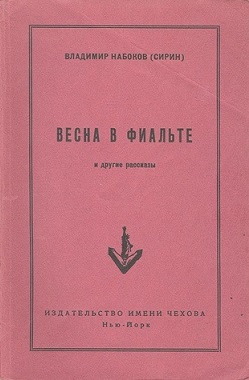
Spring in Fialta and other stories is a collection of short stories by the Russian author Vladimir Nabokov. The collection contains 14 short stories written between 1931 and 1940. It was originally planned to be published in 1939 in Paris; however, due to the approach of World War II, it became an abandoned project.

Sergey Vladimirovich Nabokov was a Russian poet and pedagogue. He died in a Nazi concentration camp located in Neuengamme. He was brother to Vladimir Nabokov.

Julian Lane Moynahan was an American academic, librarian, literary critic, poet, and novelist. Much of Moynahan's academic work was focussed on D. H. Lawrence and Vladimir Nabokov. He was active as a book reviewer for leading publications on both sides of the Atlantic and was awarded a Guggenheim Fellowship in 1983.


















